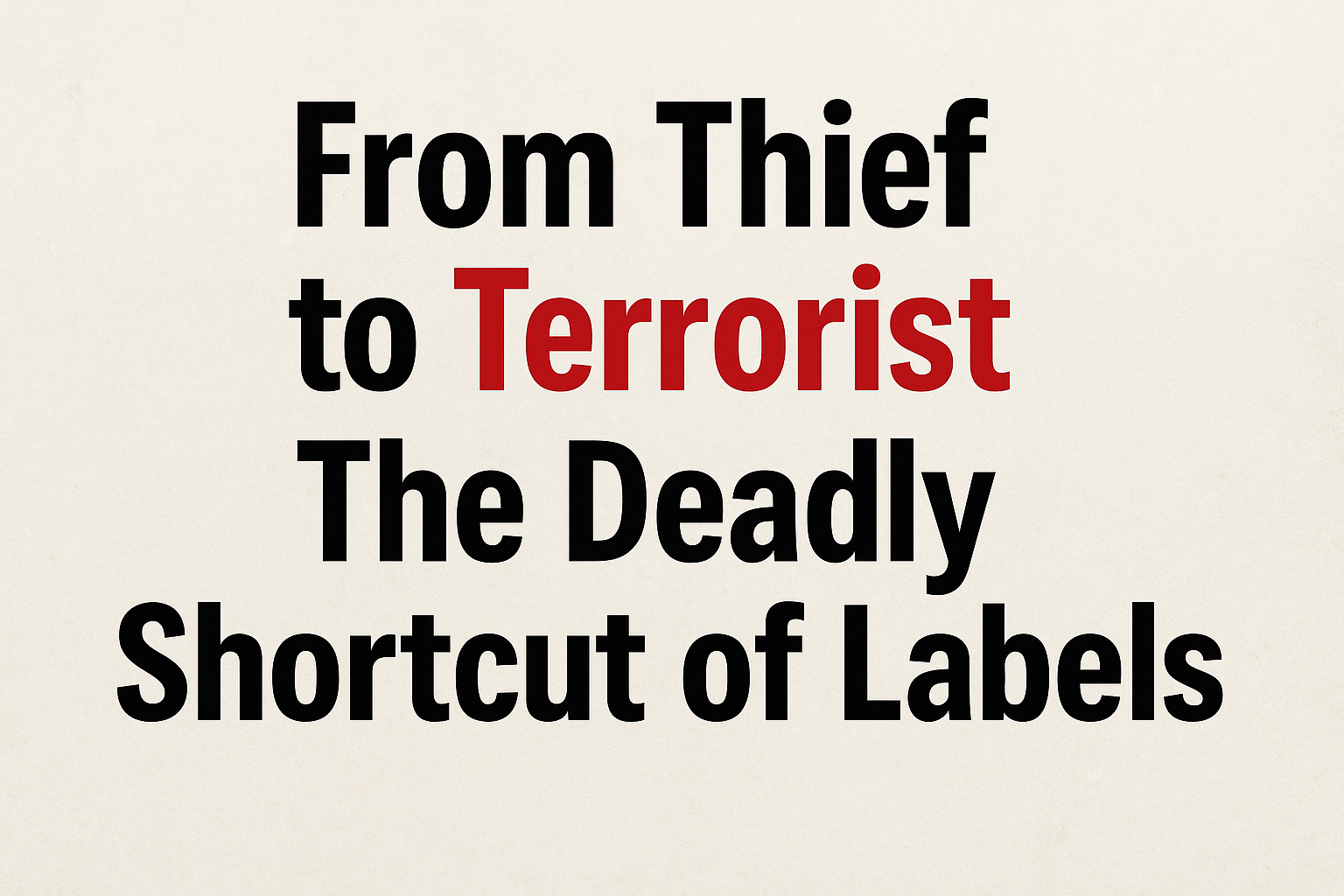They taught us that a name was just a word. In my country, I learned the opposite. A name is a verdict handed down in public, a sentence that carries its own momentum. Walk into a crowded market and cry “thief!" Make it loud, insistent, and sure. Watch how the crowd becomes a judge, jury, and executioner in the space of a heartbeat. The accused doesn’t get time to breathe; they don’t get counsel or context. They are stripped of nuance and tossed into a story the mob wants to believe. This is jungle justice. Violent, quick, and merciless. It thrives on fear, rumor, and the human appetite for a simple explanation.
There’s a countrywide theater to it. The ritual is the same. Accusation, outrage, chants, and then action. Sometimes the crowd is right. Sometimes they are terribly, fatally wrong. But the mechanism is what frightens me. When a label replaces inquiry, the consequence is predictable. A “thief” becomes less a person and more a target. Evidence is optional; spectacle becomes proof. I have seen the hushed aftermath. Families broken, homes emptied, a silence that smells of regret. I have learned to distrust the loud certainty of the mob.
Now stretch that same mechanism across borders and watch it scale. When powerful states want a chapter of the world’s story to end without public scrutiny, they don’t draft manifestos and convene courts. They place a label.
Terrorist.
Insurgent.
Threat to peace.
With such words, the global stage swivels its attention from justice to justification. Diplomacy turns into permission. Actions that would have invited scrutiny when aimed at a neighbor suddenly become strategic necessities. A name becomes a cloak that hides motives and absolves hands that would otherwise be held accountable.

This is not paranoia. It’s pattern recognition. The logic is ugly but simple: give a dog a bad name, and it’s easier to shoot. Language is weaponized because words are soft enough to be tossed around publicly but heavy enough to crush reputations and rights. Once the label is in place, dissenting voices are painted as naïve or complicit. Journalists who dig are told they are apologizing for monsters. Families who mourn are dismissed as sympathizers. The architecture of empathy is dismantled, brick by rhetorical brick.
I don’t belong to any cult or echo chamber. I’m not marching under a banner. Maybe that’s why I notice when the same trick is used locally and globally. The difference is scale but not principle. Whether in a market square or a televised briefing, the crowd wants certainty. Certainty is comforting; it makes action seem moral. But moral action built on lazy naming is a dangerous illusion. It saves communities from the arduous work of investigation, from the slow and messy process of listening, verifying, and judging with care.
So what do we do? We must refuse the enchantment of easy names. We should insist on questions before verdicts: Who saw this? What is the evidence? Who benefits from this accusation? We must protect the space for contradiction and for slow-cooked truth. That does not mean defending criminals, nor does it mean excusing danger. It means insisting that punishment be the outcome of a careful, transparent process, not the first act in a public play.
And on the international scale, democracies that claim to defend human rights must be held to the same standard. Calling a group a “terrorist” should not be a magic wand that strips life and liberty without an accountable process. If a nation seeks to label others in ways that open the door to violence, then let the burden of proof be high, public, and rigorous. If not, the world merely replicates the mob: acting fast, feeling righteous, and escaping the consequences.
I am tired of the cruelty that comes from shouting first and thinking later. The cost of a name can be a life, a family, a history erased in the clamor. If we value justice, then we must value the slow, inconvenient, human work that produces it. Inquiry, patience, and the refusal to let labels do our thinking for us. Call out wrongdoing when you see it, but do not let the shouting become the whole of justice.
In the end, justice is not the loudest voice in the room. Justice is the one that listens.
Posted Using INLEO